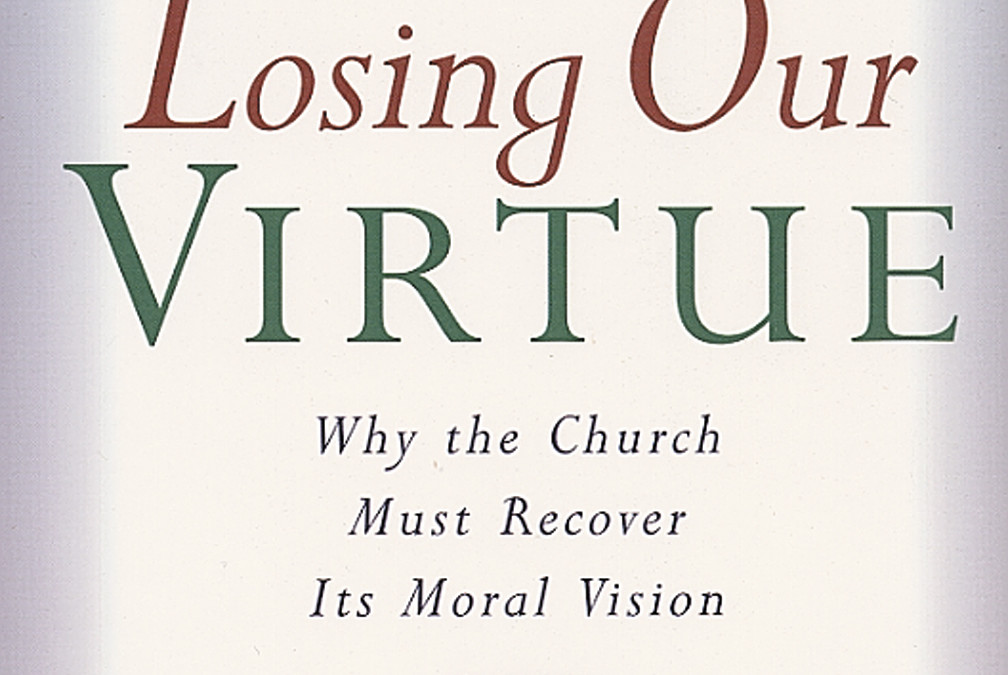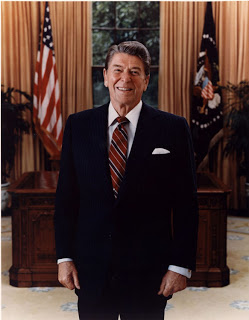
by Bret Capranica | Sep 10, 2016 | Culture
Each morning I read through a few articles from a few newspapers and online sources. Here are a few articles of note that caught my attention this week: “We’re the Only Plane in the Sky” – Politico publishes a long, but fascinating blow-by-blow account of what 9/11 was like from the perspective of those who surrounded and served President George W. Bush. The story of those remarkable hours—and the thoughts and emotions of those aboard—isolated eight miles above America, escorted by three F-16 fighters, flying just below the speed of sound, has never been comprehensively told. This oral history, based on more than 40 hours of original interviews with more than two dozen of the passengers, crew, and press aboard—including many who have never spoken publicly about what they witnessed that day—traces the story of how an untested president, a sidearm-carrying general, top aides, the Secret Service and the Cipro-wielding White House physician, as well as five reporters, four radio operators, three pilots, two congressmen and a stenographer responded to 9/11. Pastor David Prince gives helpful comment on Andy Stanley’s comments this week about Christianity’s unnecessary dependence upon the Bible. I was at the recent ERLC Onward Conference listening when Russell Moore was having a conversation about ministry and preaching with Andy Stanley. I was startled when Stanley said he preaches some sermons without ever quoting the Bible. He views these sermons as extended introductions. Stanley also said we do not believe Christianity because of the Bible, but because of the resurrection and eyewitness testimonies. A couple of years ago, Stanley said that preachers should stop saying, “The Bible says,” a...

by Bret Capranica | May 11, 2016 | Culture, Psychology, Technology
On my shelf and unread for many years is David Wells’ third book in his four-book series on theology and culture, Losing Our Virtue. It is now on the side arm of my reading chair and I am beginning my way through it. Even though it was written in 1998, his analysis of the contemporary Christian culture remains spot-on and vitally important for our consideration. The ills he outlines in the book not only remain nearly twenty years after he composed them, but are more more advanced in their expression and negative impact on the church. Even the contemporary reactions of a new generation to the former generation’s narcissism, remain narcissistic (perhaps I will address how I see that in a future post). Here are a few quotes from his first chapter, “A Tale of Two Spiritualities.” Wells begins to outline a few similarities between the culture of Martin Luther some 500 years ago and our contemporary era (though 20 years removed from today). Technology also reduces all of life to the productive order, to measurable benefits, to the calculus of cost an profit, and what is most efficient rapidly becomes what is ethically permissible or right. In a technologically dominated world, what is real is what is found along the flat plane of human management, where effects can be strictly controlled by our own causes. The use of technology greatly enlarges the sense of autonomy, of being at the center of one’s own world and of pulling the strings of its circumstances, through it is probably also the case that different generations look on technology in slightly different...

by Bret Capranica | Oct 1, 2013 | Featured Articles, Presidential History, Time/Life Management
Mixing two of my interests (Presidential History and productivity), I was intrigued by this Vanity Fair article on President Obama. I’m quite sure it was part of the 2012 election public relations strategy, but I did find a few interesting approaches from the current President to streamline decision making, keep himself focused, structure meetings, and working with people. Just two short excerpts: Routine and Its Impact on Decision-Making This time he covered a lot more ground and was willing to talk about the mundane details of presidential existence. “You have to exercise,” he said, for instance. “Or at some point you’ll just break down.” You also need to remove from your life the day-to-day problems that absorb most people for meaningful parts of their day. “You’ll see I wear only gray or blue suits,” he said. “I’m trying to pare down decisions. I don’t want to make decisions about what I’m eating or wearing. Because I have too many other decisions to make.” He mentioned research that shows the simple act of making decisions degrades one’s ability to make further decisions. It’s why shopping is so exhausting. “You need to focus your decision-making energy. You need to routinize yourself. You can’t be going through the day distracted by trivia.” The self-discipline he believes is required to do the job well comes at a high price. “You can’t wander around,” he said. “It’s much harder to be surprised. You don’t have those moments of serendipity. You don’t bump into a friend in a restaurant you haven’t seen in years. The loss of anonymity and the loss of surprise is an...

by Bret Capranica | Sep 4, 2013 | Presidential History
Over the past two weeks I’ve been reading through Richard Reeve’s, President Reagan. Reeve is an accomplished presidential biographer. While no friend to Reagan’s political philosophy, Reeve does paint a more objective picture than many of the former president’s detractors. Typically when I am reading a presidential biography I am mostly on the hunt for the habits that mark his leadership style. Here are a few I have marked in regard to his first term: From the Introduction Reagan had the virtues and failings of an old man: He already knew what he wanted to know, he was set in his ways, stubborn, and he did not generally care what journalists or the hired help thought of him. He was not obsessed by history, as were Kennedy and Nixon (xiii). A note Reeves marked in Calvin Coolidge’s autobiography that Reagan read while in the White House: “In the discharge of the duties of the office there is one rule of action more important than all others. It consists in never doing anything that some one else can do for you” (xiii). I do not subscribe to the many theories of Reagan’s passivity. It is true that much of any presidency is essentially reactive, dealing with crises unpredictable and unanticipated-strikes, bombings, market crashes, revolutions, plagues – but the President Reagan I found in the course of my research was a gambler, a bold, determined guy (xiv). I do not think Reagan was an unwitting tool of a manipulative staff. Quite the opposite (xv). He knew how to be President. The job does not pay by the hour. Presidential naps don’t...

by Bret Capranica | May 1, 2012 | Christian Living, Culture, Featured Articles, Technology
Face it, Facebook (I use this as a moniker for all social media, i.e., Twitter) is a part of our culture and it is not likely to go away any time soon. Like money, the love of Facebook is the root of many evils, and yet, at the same time, it has the potential to be used for the glory of God and the heralding of the gospel. I am intrigued, overjoyed, and discouraged by Facebook’s social influence. I have lists of friends, church members, family members, co-workers, high-school friends, fellow pastors, theologians, churches, etc. I check in on some of these lists regularly just to see what’s going on in the lives of people I know – know of – or wish I knew. Again, it can be joyfully encouraging or a colossal waste of time and instantly discouraging. A friend recently sent me a note in which he was seeking advice in guiding one of his children through the decision on whether he would allow her a FB page or not. I immediately thanked God for having children who are young enough to make this request a non-issue in the Capranica home at this point. My friend’s child came up with a list of what she would not do on the page if and when allowed to have it. Good list, but it had me thinking. For some reason, Facebook has evoked an “I will not” response because it has such a potential for producing what is unhealthy. What about the “I Will’s” of Facebook? A host of “I Will Not’s” is perhaps necessary, but we often...

by Bret Capranica | Apr 2, 2011 | Featured Articles, Ordinary Pastor, Pastoral Ministry, Presidential History, Time/Life Management
What should an ordinary pastor glean from how the President”™s office was organized and functioned? The pastorate is not a political machine like the White House, so many issues are simply inappropriate and unnecessary. But I can find a number of helpful points to consider when thinking through how a pastor should think about how to make the best use of his time. A pastor can”™t run ministry on his own, but needs key and capable people to rely upon. The biblical principle of eldership indicates that no one man should be directing the affairs of the church. Qualified and capable men who can collectively oversee the church”™s ministry are needed. Ephesians 4:11-16 is a great picture of every part of the body doing its share, with pastors assuming one key role ““ that of equipping others to carry out the ministry. We need some regular (daily, weekly, monthly, quarterly, annual) time to think, write, plan, pray, and rest. Otherwise, a pastor”™s time will be reactive rather than proactive; he will lose focus on what is most important for the whole of the church because he is caught up in putting out immediate fires, and he will mentally and emotionally wear himself out from trying to keep up with every conceivable issue beyond his control. Trust and focus are key commodities in how we work with staff around us. Written plans culled and vetted by key staff as opposed to spur-of-the-moment conversations with innumerable personalities provides a more proactive, and thoughtful approach to advancing ministry objectives. Ministry needs to be thought through. What are the biblical parameters and implications...













